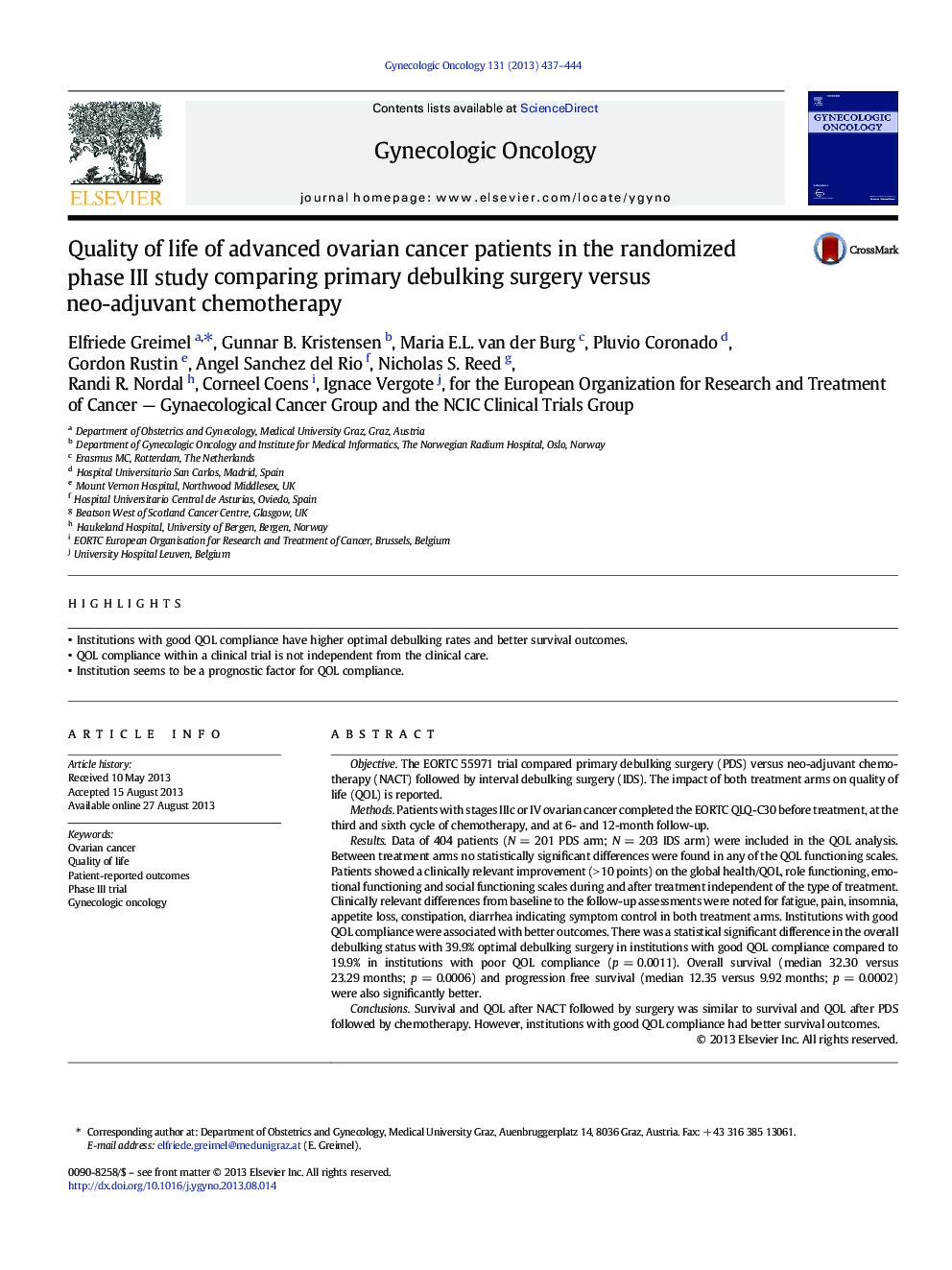| Article ID | Journal | Published Year | Pages | File Type |
|---|---|---|---|---|
| 6183686 | Gynecologic Oncology | 2013 | 8 Pages |
â¢Institutions with good QOL compliance have higher optimal debulking rates and better survival outcomes.â¢QOL compliance within a clinical trial is not independent from the clinical care.â¢Institution seems to be a prognostic factor for QOL compliance.
ObjectiveThe EORTC 55971 trial compared primary debulking surgery (PDS) versus neo-adjuvant chemotherapy (NACT) followed by interval debulking surgery (IDS). The impact of both treatment arms on quality of life (QOL) is reported.MethodsPatients with stages IIIc or IV ovarian cancer completed the EORTC QLQ-C30 before treatment, at the third and sixth cycle of chemotherapy, and at 6- and 12-month follow-up.ResultsData of 404 patients (N = 201 PDS arm; N = 203 IDS arm) were included in the QOL analysis. Between treatment arms no statistically significant differences were found in any of the QOL functioning scales. Patients showed a clinically relevant improvement (> 10 points) on the global health/QOL, role functioning, emotional functioning and social functioning scales during and after treatment independent of the type of treatment. Clinically relevant differences from baseline to the follow-up assessments were noted for fatigue, pain, insomnia, appetite loss, constipation, diarrhea indicating symptom control in both treatment arms. Institutions with good QOL compliance were associated with better outcomes. There was a statistical significant difference in the overall debulking status with 39.9% optimal debulking surgery in institutions with good QOL compliance compared to 19.9% in institutions with poor QOL compliance (p = 0.0011). Overall survival (median 32.30 versus 23.29 months; p = 0.0006) and progression free survival (median 12.35 versus 9.92 months; p = 0.0002) were also significantly better.ConclusionsSurvival and QOL after NACT followed by surgery was similar to survival and QOL after PDS followed by chemotherapy. However, institutions with good QOL compliance had better survival outcomes.
